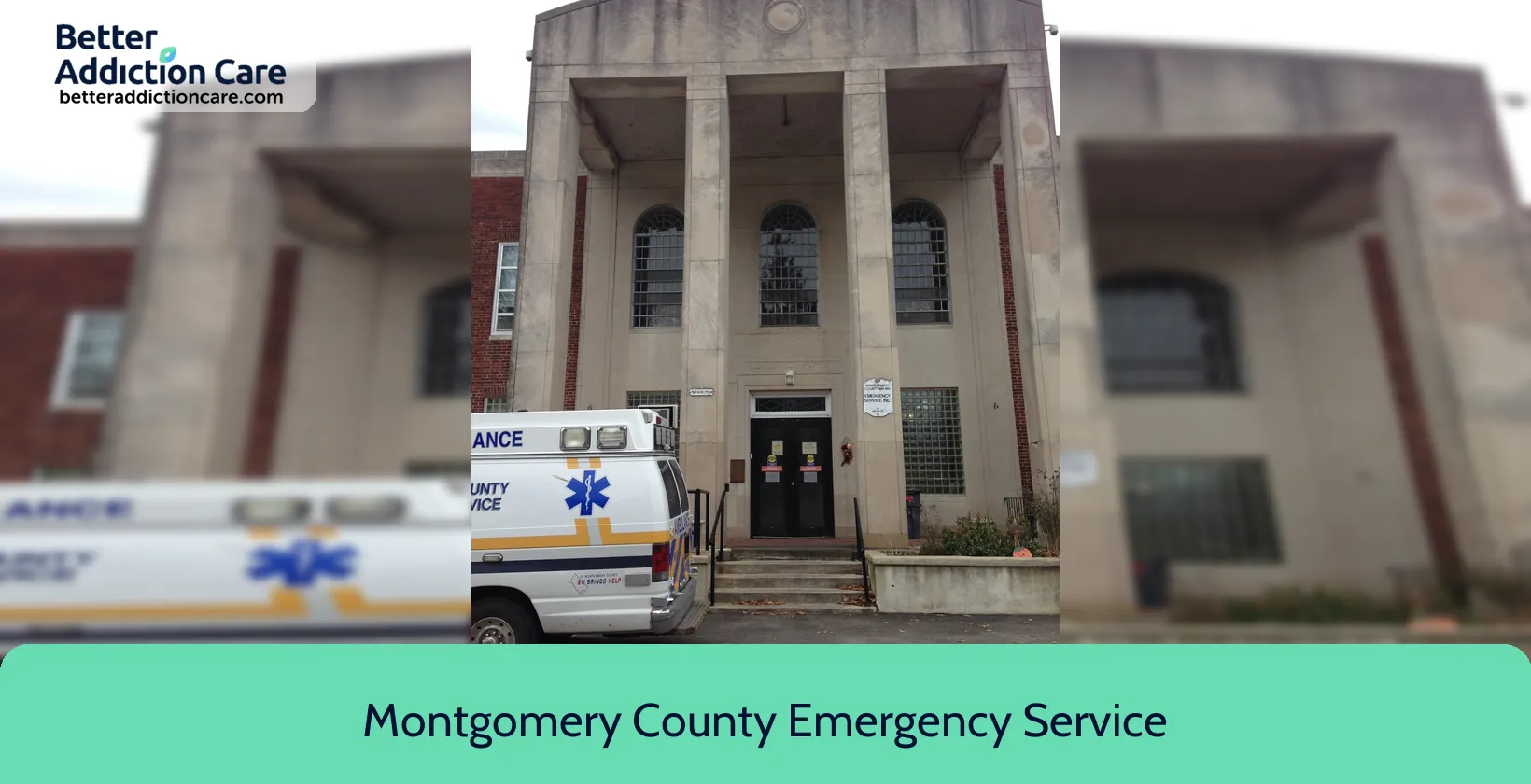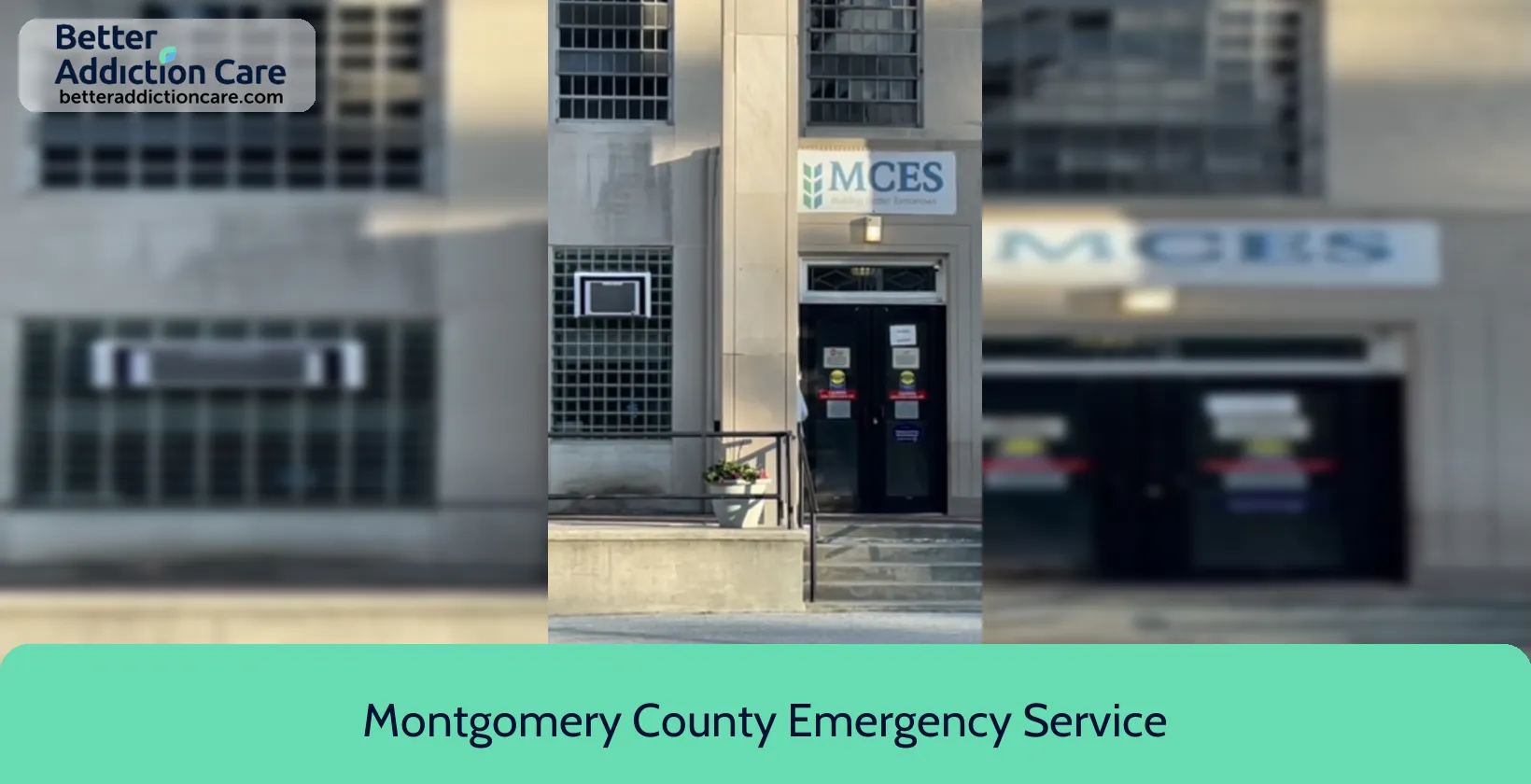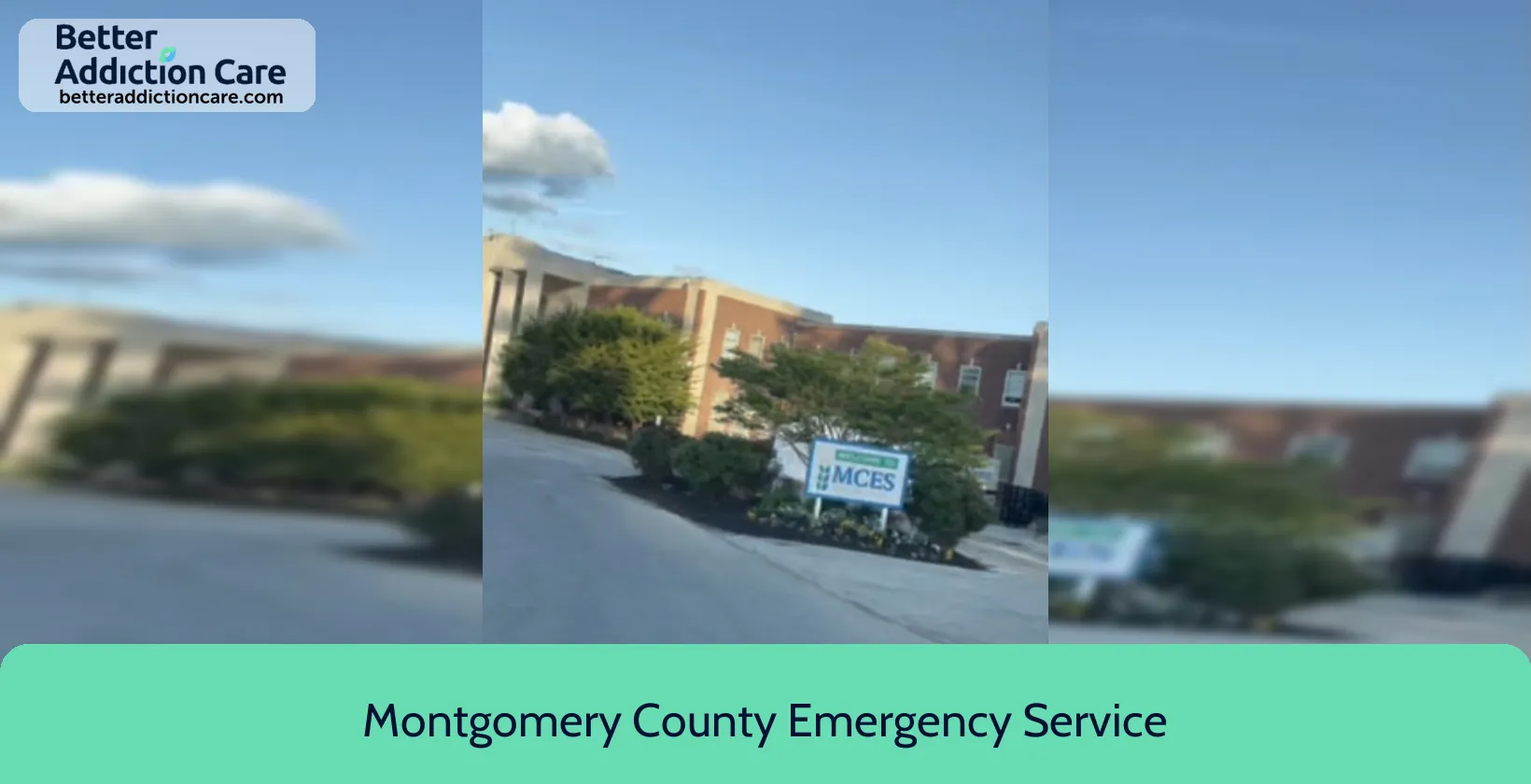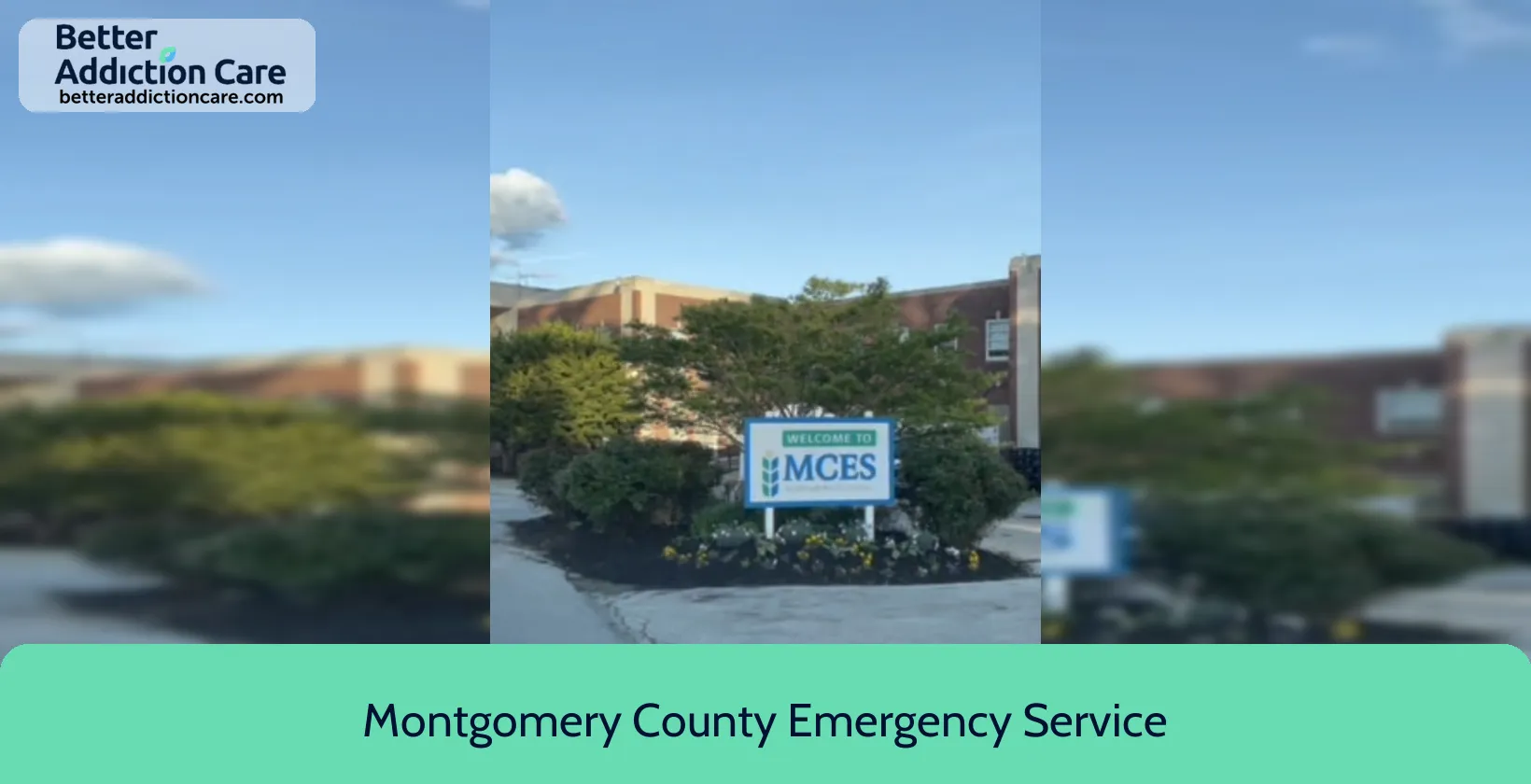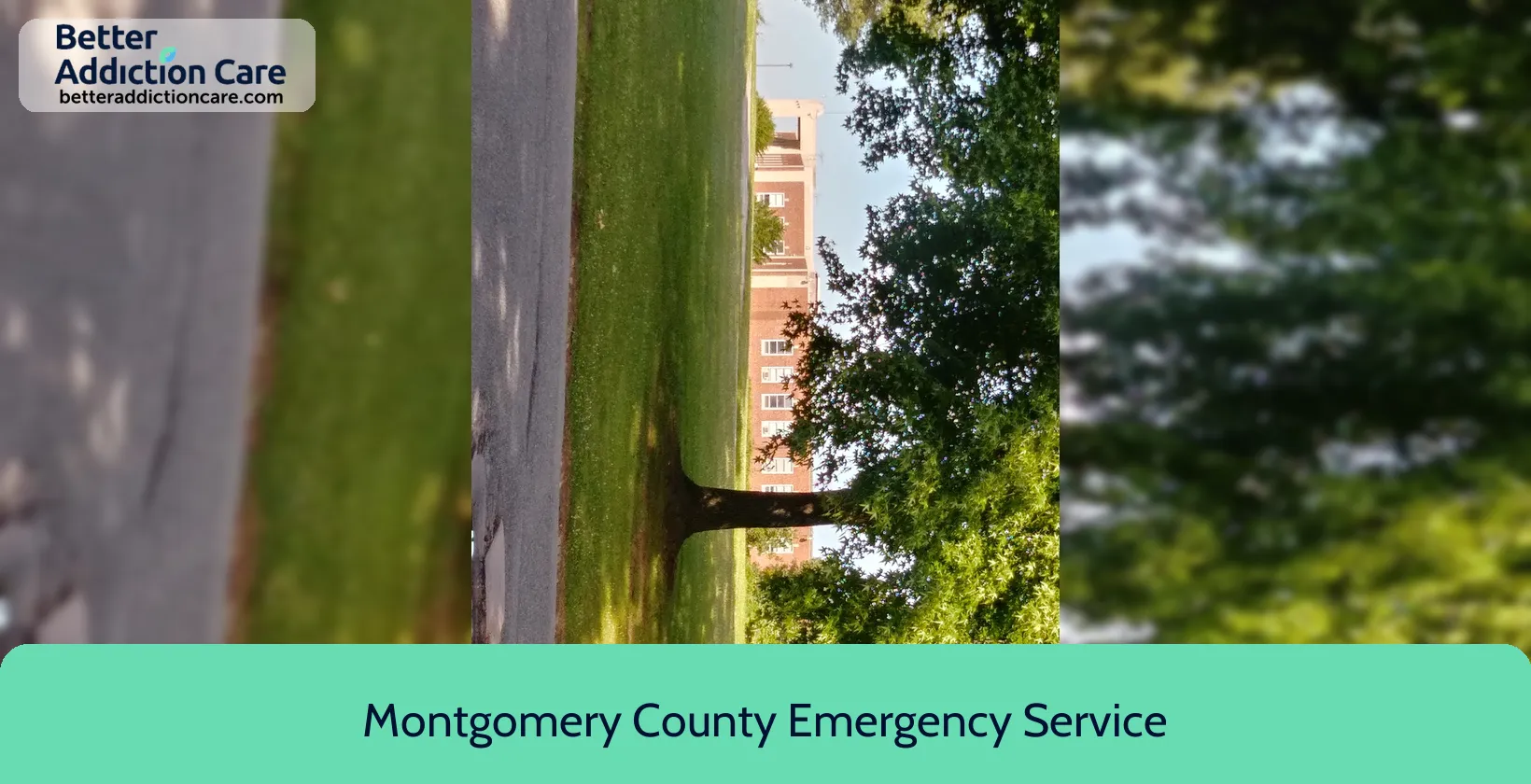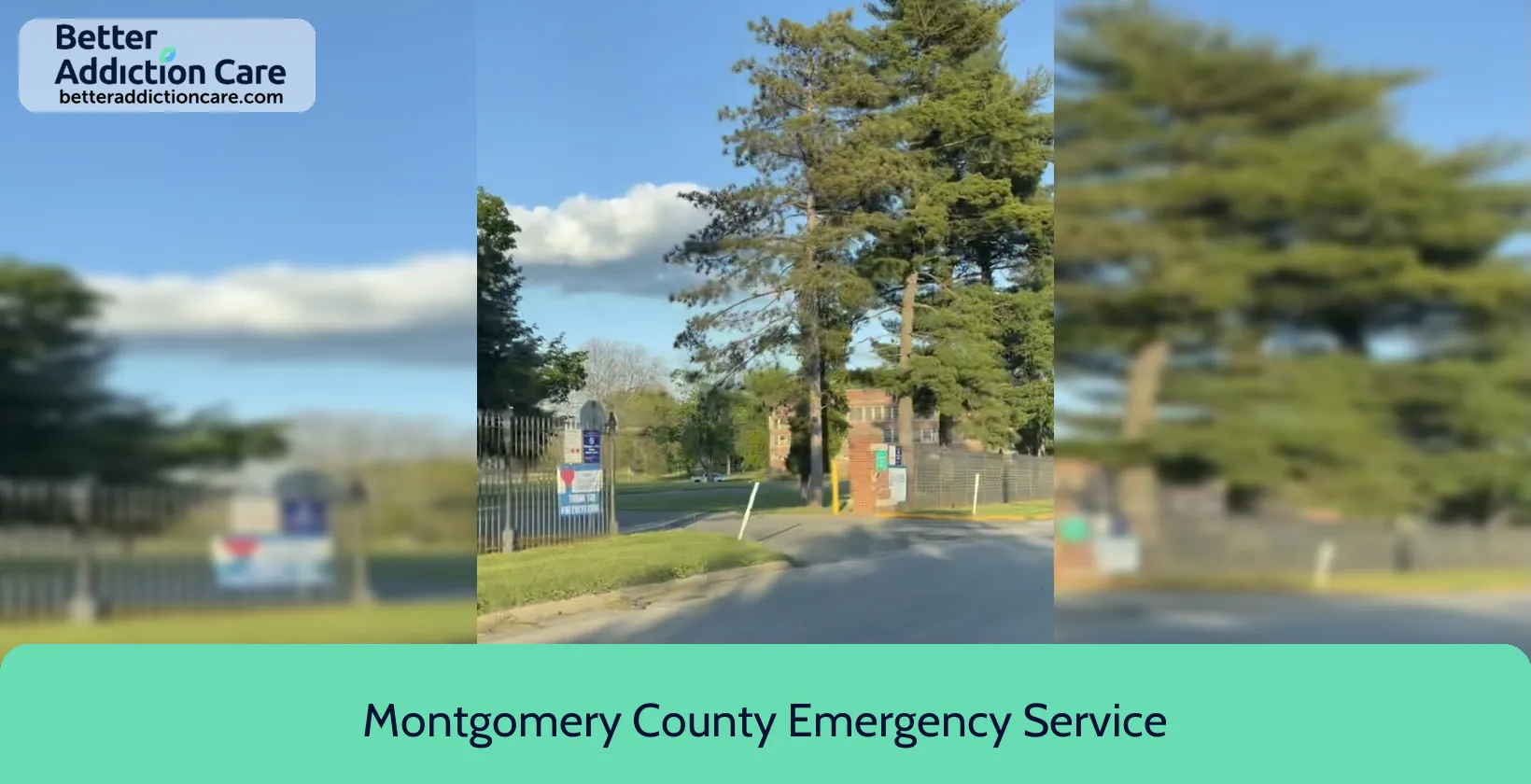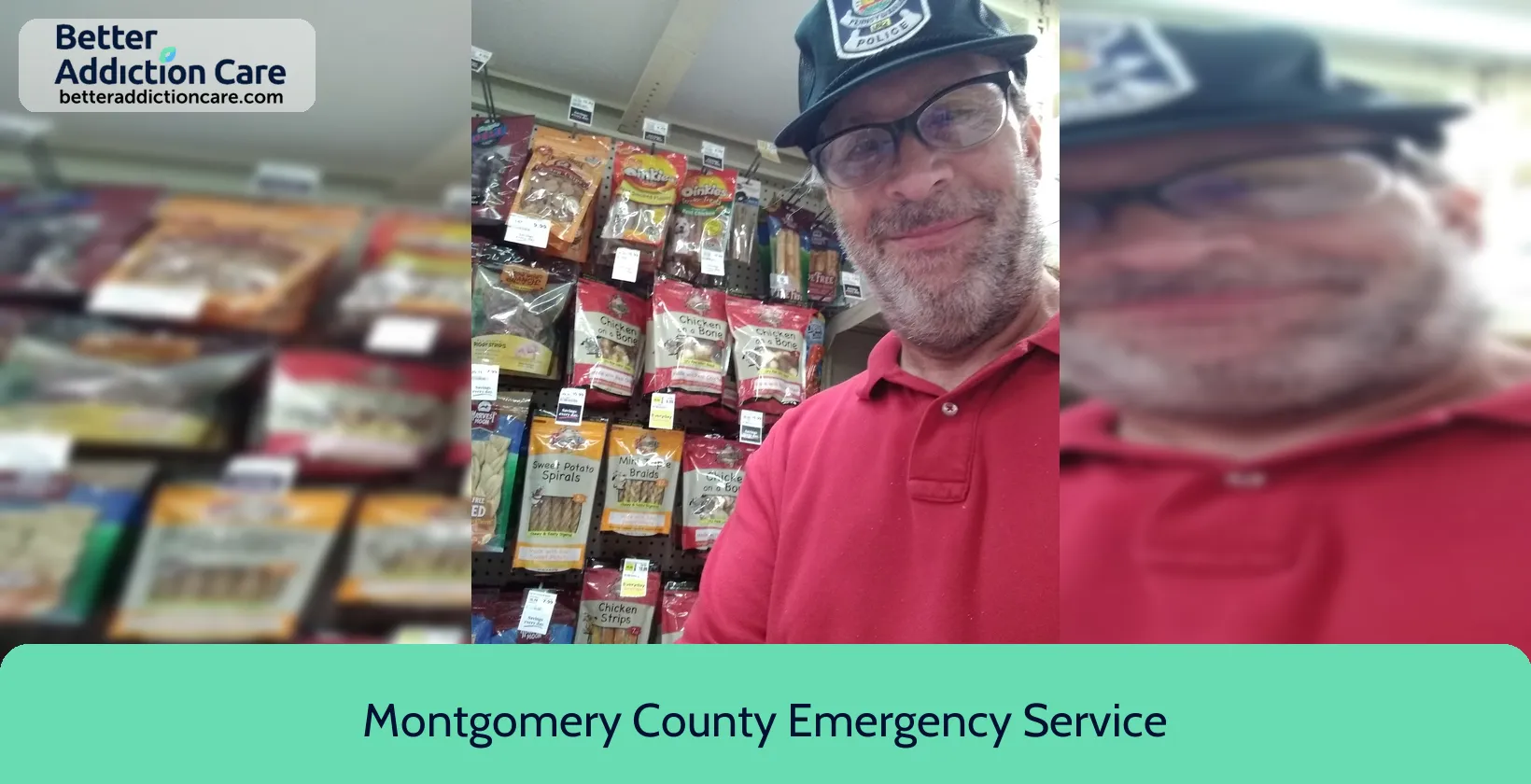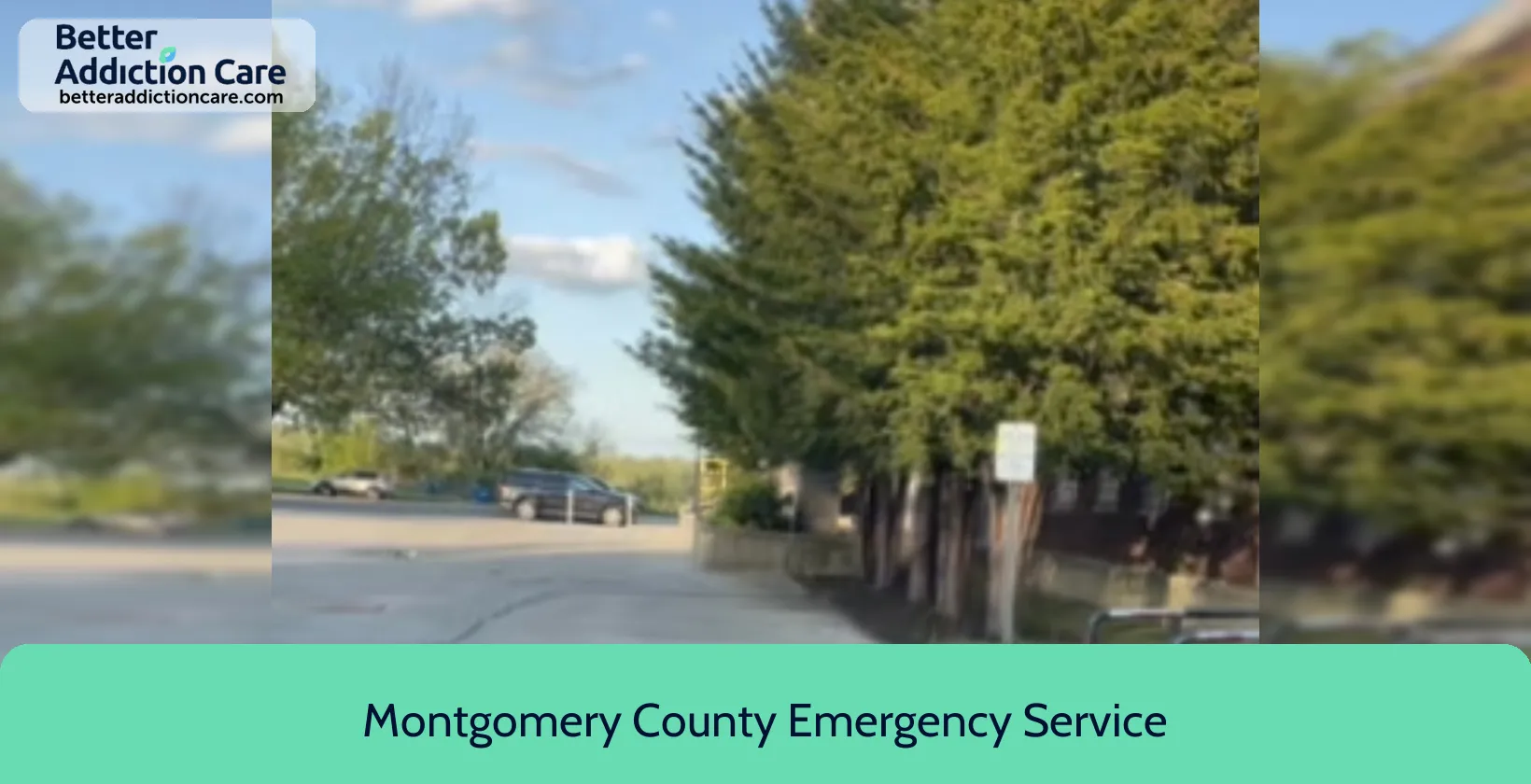Montgomery County Emergency Service
Overview
Montgomery County Emergency Service is a mental health treatment center for people seeking treatment near Montgomery County. As part of their treatment modalities for recovery, Montgomery County Emergency Service provides individual psychotherapy and activity therapy. during treatment. Montgomery County Emergency Service is located in Norristown, Pennsylvania, accepting cash or self-payment for treatment.
Montgomery County Emergency Service at a Glance
Payment Options
- Cash or self-payment
- Medicaid
- Medicare
- Private health insurance
- Federal military insurance (e.g., TRICARE)
Assessments
- Screening for tobacco use
- Comprehensive mental health assessment
- Comprehensive substance use assessment
Age Groups
- Young adults
- Adults
- Seniors
Ancillary Services
- Suicide prevention services
Highlights About Montgomery County Emergency Service
6.53/10
With an overall rating of 6.53/10, this facility has following balanced range of services. Alcohol Rehabilitation: 8.00/10, Drug Rehab and Detox: 6.00/10, Insurance and Payments: 6.00/10, Treatment Options: 6.12/10.-
Alcohol Rehabilitation 8.00
-
Treatment Options 6.12
-
Drug Rehab and Detox 6.00
-
Insurance and Payments 6.00
Treatment At Montgomery County Emergency Service
Treatment Conditions
- Alcoholism
- Mental health treatment
- Substance use treatment
- Co-occurring Disorders
Care Levels
- Hospital inpatient/24-hour hospital inpatient
Treatment Modalities
- Individual psychotherapy
- Activity therapy
Ancillary Services
Languages
- Sign language services for the deaf and hard of hearing
Additional Services
- Pharmacotherapies administered during treatment
- Metabolic syndrome monitoring
Contact Information
Read our Most Recent Article About Drug Addiction
DISCLAIMER: The facility name, logo and brand are the property and registered trademarks of Montgomery County Emergency Service, and are being used for identification and informational purposes only. Use of these names, logos and brands shall not imply endorsement. BetterAddictionCare.com is not affiliated with or sponsored by Montgomery County Emergency Service.
